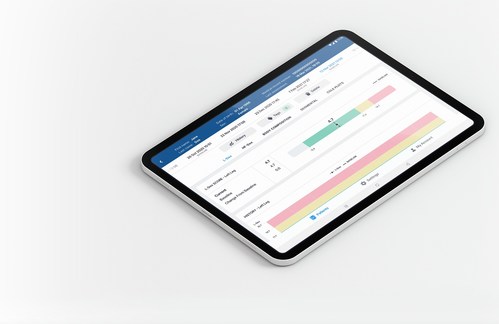New Data Show Statistically Significant Reduction In Chronic Cancer-Related Lymphedema With Early Detection Using ImpediMed L-Dex Technology And Intervention
Lymphatic Research and Biology Publishes Data on PREVENT, the Largest Randomized Trial to Assess Lymphedema Prevention
L-Dex Technology Provides a New Standard Approach for Prevention of Cancer-Related Lymphedema
ImpediMed Limited a global medical technology company using bioimpedance spectroscopy (BIS) to generate powerful data to maximize patient health, announced publication of results from the PREVENT trial showing that fewer breast cancer patients with early detection using L-Dex and intervention progressed to chronic lymphedema when compared to patients monitored with tape measure, which is the current standard of care. The result was statistically significant.
Recommended AI News: Talkmap Raises $8 Million in Series A Funding

The manuscript, published in Lymphatic Research and Biology, concluded “[L-Dex] screening should be a standard approach for prospective breast cancer-related lymphedema surveillance”
“This timely knowledge gives clinicians the information they need to begin early intervention on their patients at a stage when it’s possible to keep the lymphedema from advancing,” said Principal Investigator Sheila H. Ridner, PhD, RN, FAAN, research professor at Vanderbilt University School of Nursing. “These findings provide all clinicians addressing lymphedema in breast cancer patients with clear scientific data regarding the optimal measurement and sound evidence to switch from using tape measurements.”
“That is a victory for patients, particularly the 1,200 breast-cancer patients who volunteered for this study. I thank them and all the collaborators at 13 hospitals across the US and Australia for their dedicated work over several years,” she continued.
“The results of this study provide clarity for patients and clinicians regarding breast cancer-related lymphedema (BCRL) screening and early intervention,” added Dr. Chirag Shah, Director of Breast Radiation Oncology and Director of Clinical Research in the Department of Radiation Oncology at Cleveland Clinic and co-investigator of the PREVENT Trial.
He continued, “The primary outcome demonstrated the benefit of prospective monitoring with L-Dex coupled with early intervention in reducing rates of chronic lymphedema, which is important clinically due to the impact of chronic BCRL on patients’ quality of life. One of the most significant components of the results was the risk-adjusted analysis. When looking at key risk factors for BCRL, including body weight, stage of cancer, type of cancer surgery, lymph node dissection, chemotherapy, and radiation, the benefit of using L-Dex monitoring was consistent and showed the utility of L-Dex across a large group of breast cancer patients.”
ImpediMed’s PREVENT Trial demonstrated that patients with early detection using L-Dex and at-home intervention with compression garments resulted in a 7.9% rate of chronic lymphedema compared to a 19.2% rate of chronic lymphedema using tape measure. The difference is statistically significant (p=0.016) as well as being clinically significant for patients and clinicians. This represents an absolute reduction of 11.3% and relative reduction of 59% in lymphedema progression at three years.
A risk-adjusted analysis showed a significantly consistent benefit of L-Dex monitoring in a large group of patients with key risk factors for breast cancer-related lymphedema including body weight, stage of cancer, type of cancer surgery, lymph node dissection, chemotherapy, and radiation (odds ratios: 0.23-0.39). Today, L-Dex is the only non-invasive, reliable, validated tool to help clinicians identify subclinical lymphedema. Monitoring L-Dex scores allows clinicians across multiple specialties to provide individualized, proactive care that can help improve patient outcomes.
Recommended AI News: Solera to Acquire Leading Vehicle Intelligence Company Spireon
The paper concludes the following:
- These statistically significant results demonstrate that [L-Dex] screening should be a standard approach for prospective breast cancer-related lymphedema (BCRL) surveillance.
- [L-Dex] is more specific for lymphedema detection than tape measure (TM), as it had fewer triggers and longer times to intervention trigger.
- While the [L-Dex] protocol can be easily replicated in clinical settings, the rigor of the TM protocol for this study exceeded what is practical in most clinics. Thus, [L-Dex] may offer even more benefit across clinical settings than what was demonstrated in this study.
- [L-Dex], as compared to TM, provides a more precise identification of patients likely to benefit from an early compression intervention.
“The results of the PREVENT trial show how L-Dex technology provides a new standard of care for hundreds of thousands of breast cancer patients with lymphedema or at risk of developing lymphedema who were monitored previously with a tape measure,” said Dr. Frank Vicini, ImpediMed’s Chief Medical Officer. “Many of these patients have survived surgery, chemotherapy, radiation and other treatments, only to face a long-term, painful battle with lymphedema. Now, routine L-Dex monitoring can help clinicians detect signs of lymphedema very early and intervene, positively impacting patients’ quality of life.”
Breast cancer-related lymphedema occurs when the lymphatic system is damaged by surgical, radiation or chemotherapy treatments. The risk of developing lymphedema ranges from 6% to 42% depending on the treatment approach. Patients suffering from lymphedema commonly experience swelling in their arms and hands that can interfere with activities of daily life and work. Treatments that include compression garments and therapy can be costly to patients. On average, breast cancer survivors with lymphedema spend an extra $3,325 per year on medical care and productivity losses as compared to survivors without lymphedema. If left untreated, lymphedema can become a chronic lifelong condition leading to life-threatening infections and a significant reduction in the patient’s quality of life.
Recommended AI News: AI Gaming Leader Alteration NFT Announces Pre-Alpha Demo v.0.5.0 Release
[To share your insights with us, please write to sghosh@martechseries.com]

Comments are closed.